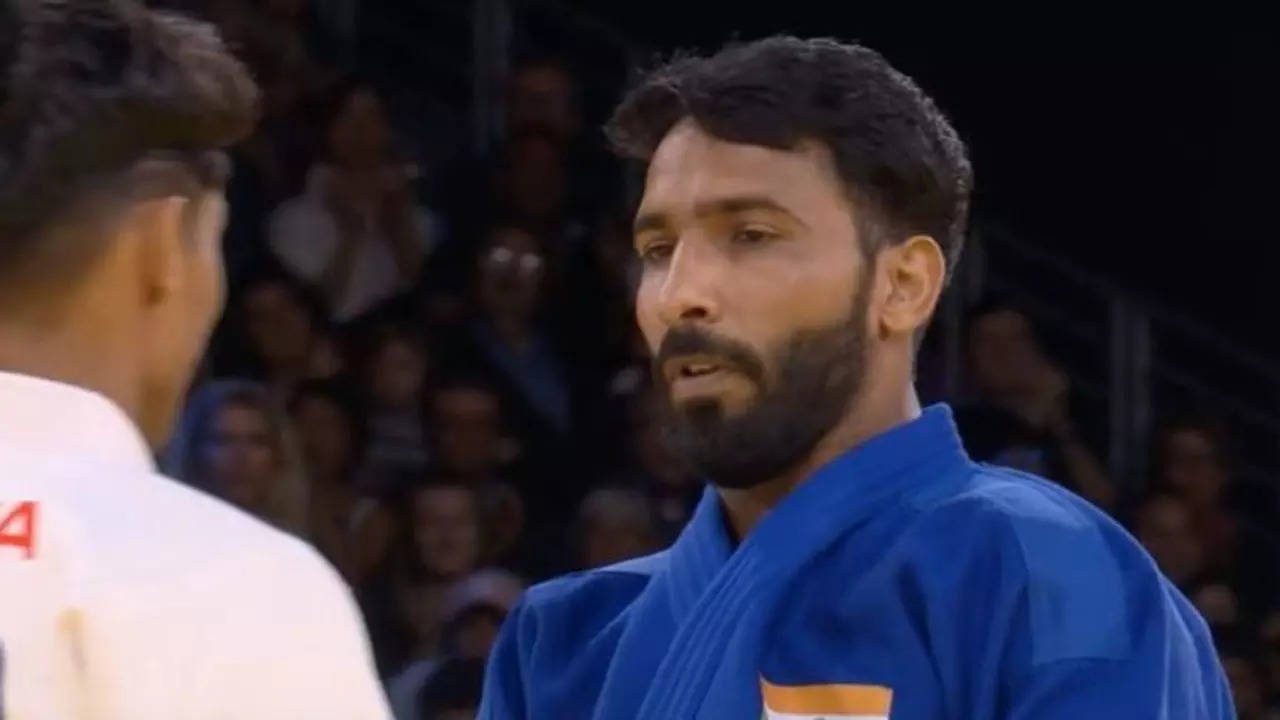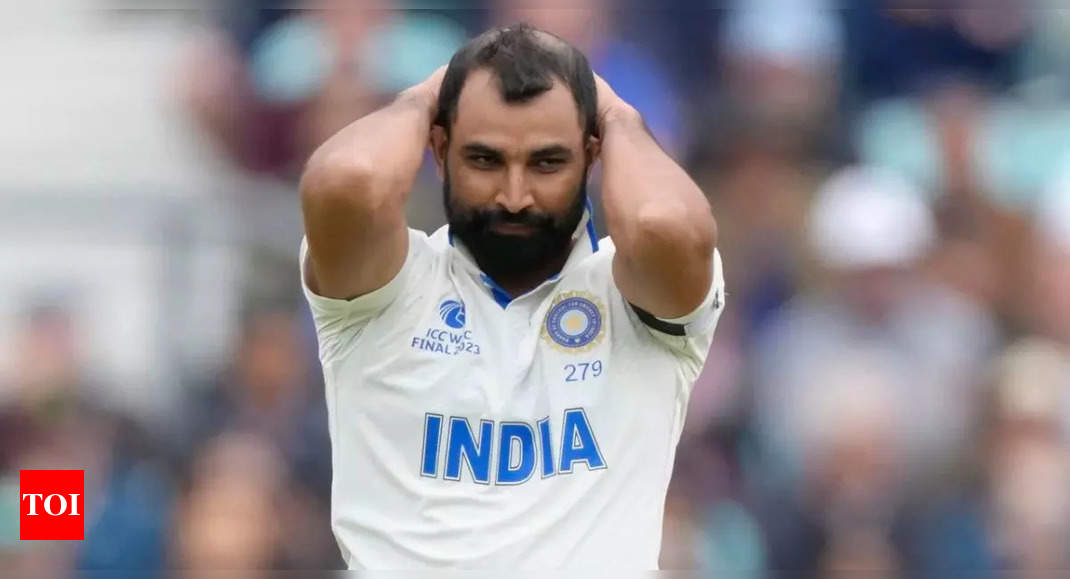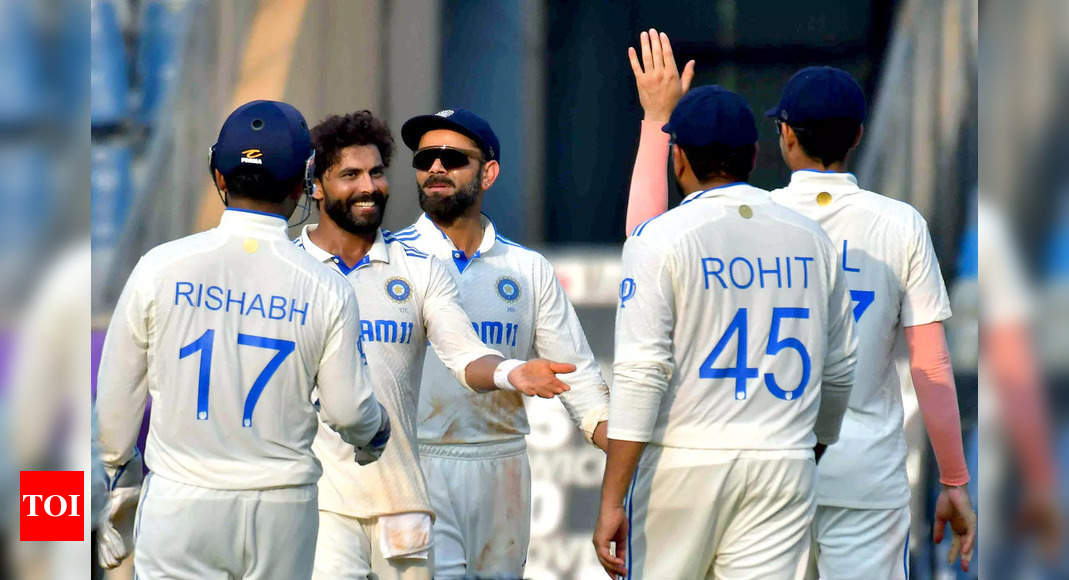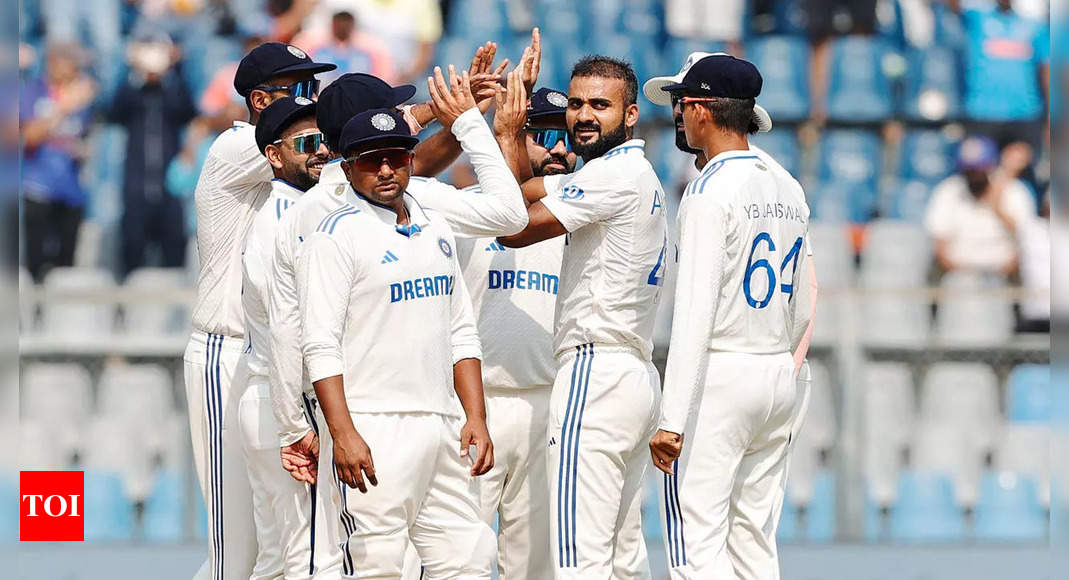
Despite earlier losing to Iran’s S Banitaba Khorram Abadi in the semifinals, Parmar’s performance in the bronze medal match was outstanding, marking a historic moment for Indian para judo.
The J1 class in para judo involves athletes with no to very low visual acuity, who are identified by red circles on their uniforms indicating they may require guided support.
Parmar, who previously won a silver medal at the 2022 Asian Games, showcased his prowess in the quarterfinals by defeating Venezuela’s Marco Dennis Blanco with another 10-0 win.
However, on his path to the bronze, Parmar received yellow cards in two of his contests.
Yellow cards in judo are typically given for minor violations such as passivity or using techniques that might pose a risk to the opponent.
Kapil hails from Shivor, a small village in Madhya Pradesh. His journey in judo began after a life-changing accident during his childhood. Parmar experienced a severe electric shock while playing in the fields, which led to him being in a coma for six months. Despite the setback, his dedication to judo never wavered.
He is the youngest of four brothers and a sister. His middle brother, who is also involved in judo, often trains with him. Parmar’s father works as a taxi driver, and his sister runs a primary school. Parmar continued to pursue judo with the support of his mentors and coaches, Bhagwan Das and Manoj.



